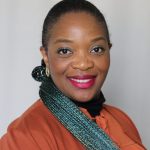heading
PROJECT: THE WOMEN IN WATER DIPLOMACY NETWORK IN THE NILEReport back: Global Network engagement 2023
The first six months of 2023 has been incredibly busy for the Women in Water Diplomacy Network, with members participating in many global engagements.
Women in Water Diplomacy Network at the December 2022 UNESCO Groundwater Conference in Paris, France
By Dr Muna Musnad, UNESCO Chair in Water Resources, Omdurman Islamic University, Sudan
In January 2019, UN-Water announced the theme of World Water Day 2022 as ‘Groundwater: Making the Invisible Visible’ with the UN World Water Development Report 2022 focused on the same topic. In March 2021, UN-Water endorsed the proposal to organize a Groundwater Summit in December 2022 at the UNESCO Headquarters in Paris, France as a contribution to the 2030 Agenda for Sustainable Development and the SDG 6 Global Acceleration Framework. Subsequently, a Task Force for the organization of the World Water Day celebrations and the Groundwater Summit was set up, coordinated by UNESCO and the International Groundwater Resources Assessment Centre (IGRAC).
About the Network
The Women in Water Diplomacy and Water Management promotes promotes women water professionals’ participation in decision-making in the water sector and gender mainstreaming in water governance, in the Nile region and Central Asia and Afghanistan.
The Women in Water Diplomacy network in the NileWomen in Water Management in Central Asia and AfghanistanA Path Forward for Women, Water, Peace, and Security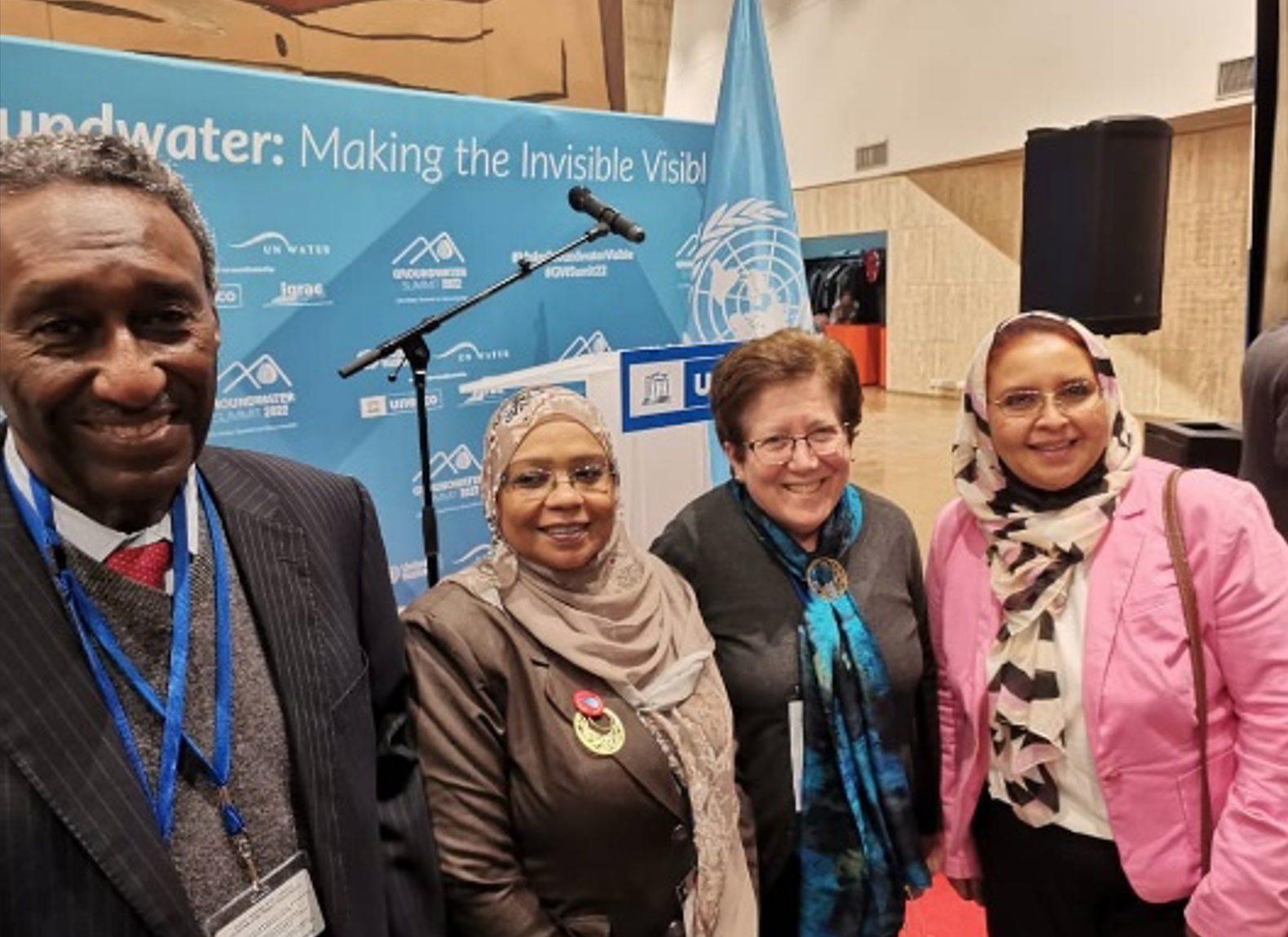
The UN-Water Summit on Groundwater 2022 aimed to bring attention to groundwater at the highest international level. The Summit leveraged the UN World Water Development Report 2022 as a baseline and the SDG 6 Global Acceleration Framework as a guideline to define actions towards more responsible and sustainable use and protection of this vital natural resource.
The Summit was organized at UNESCO Headquarters Paris, France on 6-8 December 2022 including a Pre-Summit Day for side events on 6th December and UN-Water Summit on Groundwater itself on 7 and 8 December 2022. The program contained 12 Sessions and 19 Side events, involving 700 on-site participants, 3,000 online participants and more than 120 High-level Speakers.
The Summit served as an excellent opportunity for Network Members to meet colleagues and exchange with other groundwater focused authorities and experts. The Summit also contributed to key inputs to the March 2023 UN Water Conference. In addition to the various meetings and engagements held with numerous experts and organisations representatives as an official representative of Sudan, the Summit offered a great opportunity to elevate the voices and aspirations of the Women in Water Diplomacy Network.
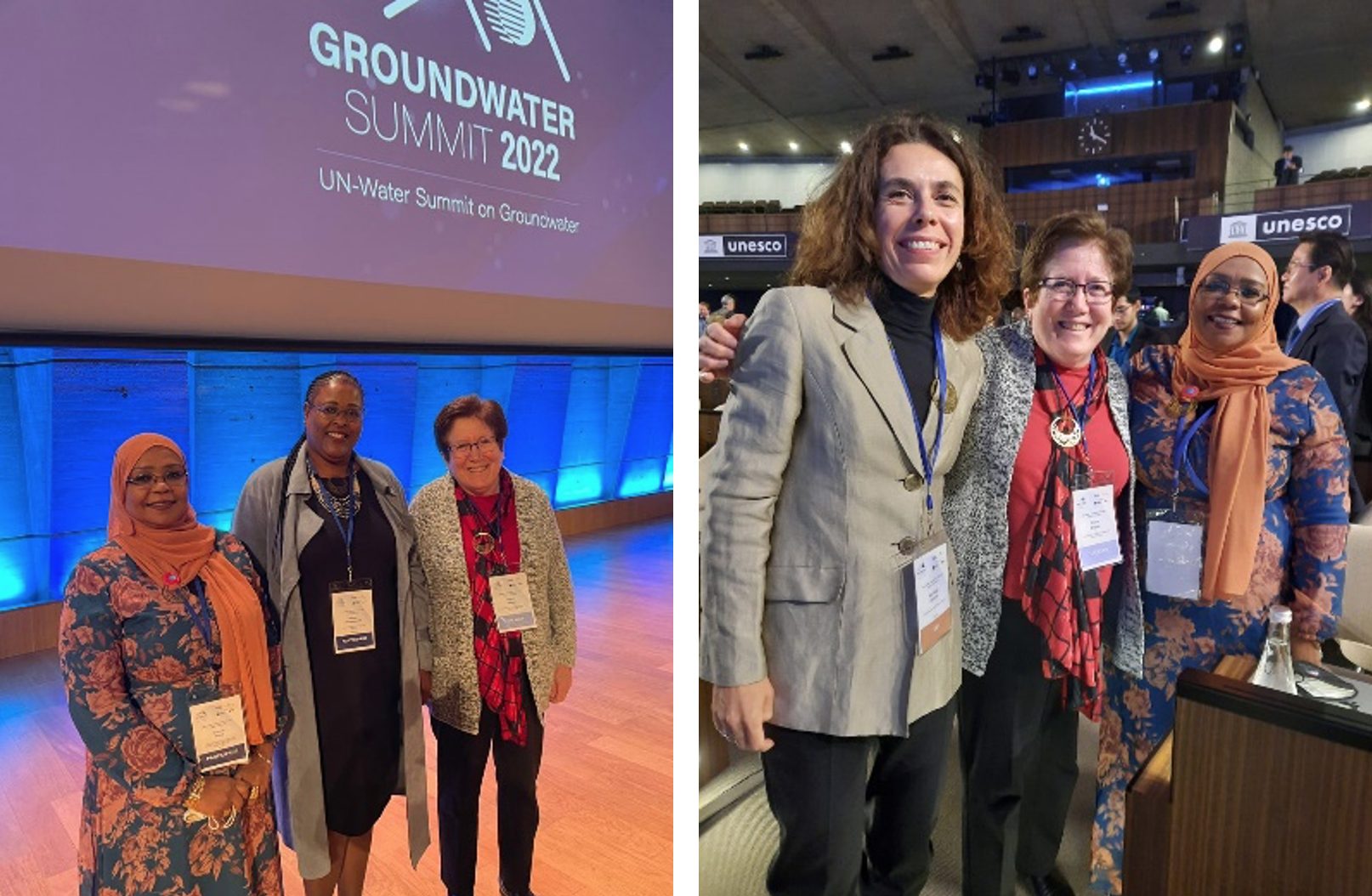
Women in Water Diplomacy Network Members and supporters gather online for the annual Year-In-Review event and launch of the UNDP Cap-Net Virtual Campus
By Julienne Ndjiki, Programme Officer, SIWI, and Member of the Women in Water Diplomacy Network’s Process Support Team and Yasmina Rais El Fenni, Senior Programme Officer, UNDP Cap-Net
In 2022, with the support of partners at the Shared Waters Partnership, Ministry of Foreign Affairs of Finland, the Organisation for Security and Co-operation in Europe (OSCE) and Regional Environmental Centre for Central Asia (CAREC), the Environmental Law Institute (ELI) and many others, the Women in Water Diplomacy (now) Global Network achieved several milestones including launching its Global Strategy and convening the first ever Global Network Forum at the World Water Week in Stockholm. To keep the momentum and the Network members motivated, share our experiences beyond the Network, an open online event was organized on 19 December 2022.
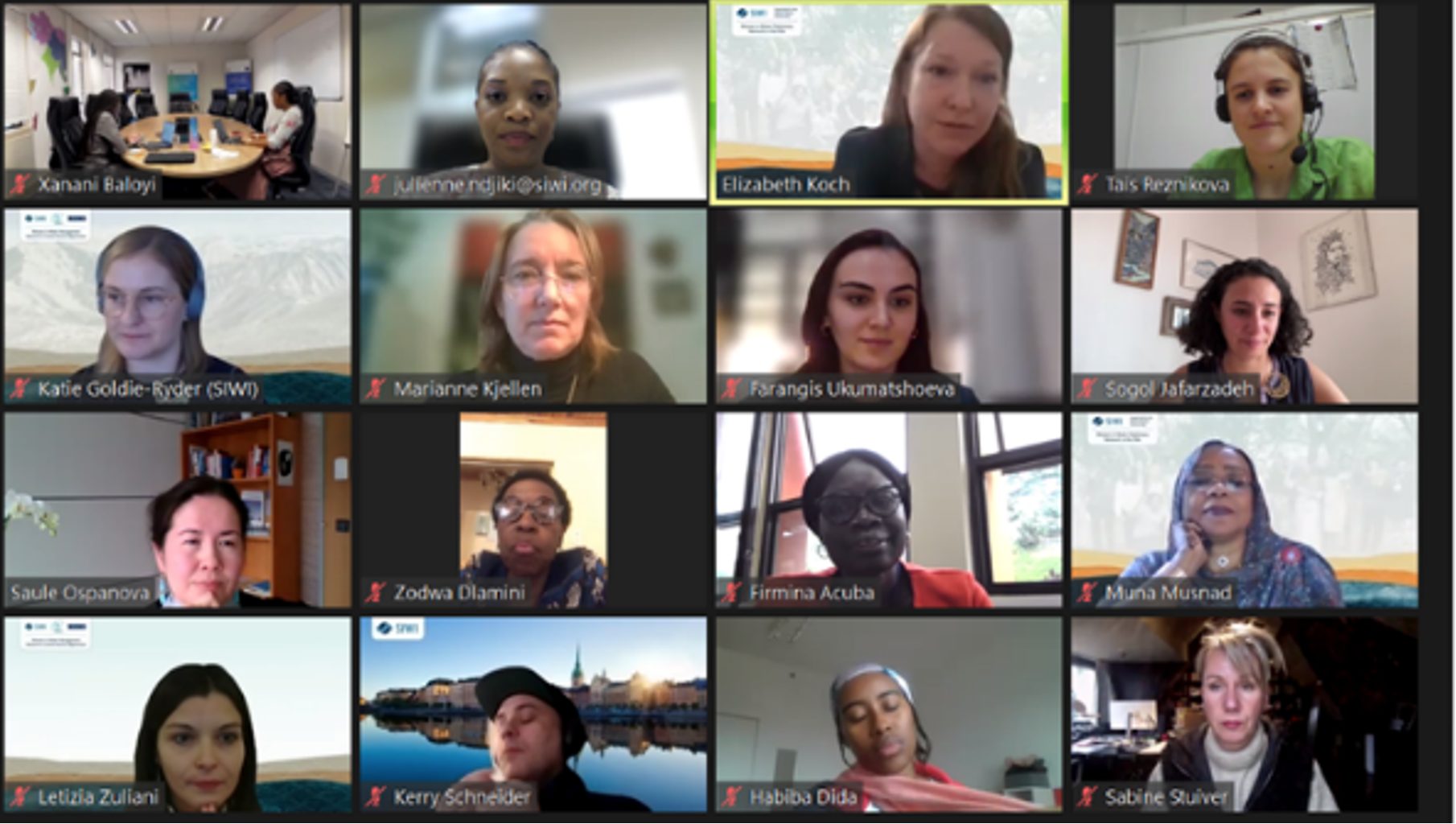
The ‘Year in Review’ online event was attended by an estimated 60 participants representing Network members, supporters, development partners and water professionals interested in learning more about the Network. It provided an opportunity for Network members to cheer each other and the Network collectively for the great milestones achieved across the year. Great progress was recorded around capacity building, experience and expertise sharing in the Nile and Central Asia and Afghanistan, but also in the aspiring regions and basins such as in the Orange-Senqu River Basin and other basins in the Southern Africa and globally. Special highlight was put on the Strategy launched during the Women in Water Diplomacy Global Network Forum in August 2022 in Stockholm, Sweden as well as the noticeable representation of the Global Network. The various Network engagements at key policy dialogues such as the 27th Conference of the Parties to the United Nations Framework Convention on Climate Change (COP 27), the United Nations Groundwater Summit, the African Ministers Council on Water (AMCOW) meetings, etc were also mentioned.
The Year in Review event also served to gear up for the upcoming activities planned in 2023 with special focus on the UN Water Conference in New York and the preparations leading to that important milestone for the Network. The format of the event provided a space for Network Members to share personal reflections on the various engagements with group discussions facilitated by Members of the Leadership Council as well as representatives from the Women in Water Management Network in Central Asia and Afghanistan.
Cap-Net UNDP, a key partner of the Women in Water Diplomacy Network initiative, provided a tour of the newly launched dedicated UNDP Cap-Net Virtual Campus space, which was established to offer the Network a platform for knowledge management and sharing, as well as strategically coordinating the Network’s efforts. Cap-Net provided support to the Network through leveraging in-kind resources to support the delivery of the Global Strategy’s Strategic Pillar 2 focused on fostering peer-to-peer learning, experience exchange, capacity development and strengthening, research cooperation and resource mobilization. Cap-Net looks forward to continued collaboration through tailored capacity development initiatives.
Women in Water Diplomacy Network Members featured in 2023 Women + Water webinar ‘Water Diplomacy Navigating the Space Between Common Goals and Competing Visions’
By Dr. Andrea May Rowe, Equity, Diversity and Inclusion Specialist, Global Water Futures
Women and Water Diplomacy Network Members Foman Forough, Merrell-Ann Phare, and Elizbeth A. Koch joined Dr. Kelsey Leonard and Dr. Margot Hurlbert on the Women Plus Water Lecture Series hosted by the University of Saskatchewan’s Global Water Futures (GWF) Research Programme and the Global Institute for Water Security (GIWS) in January 2023.
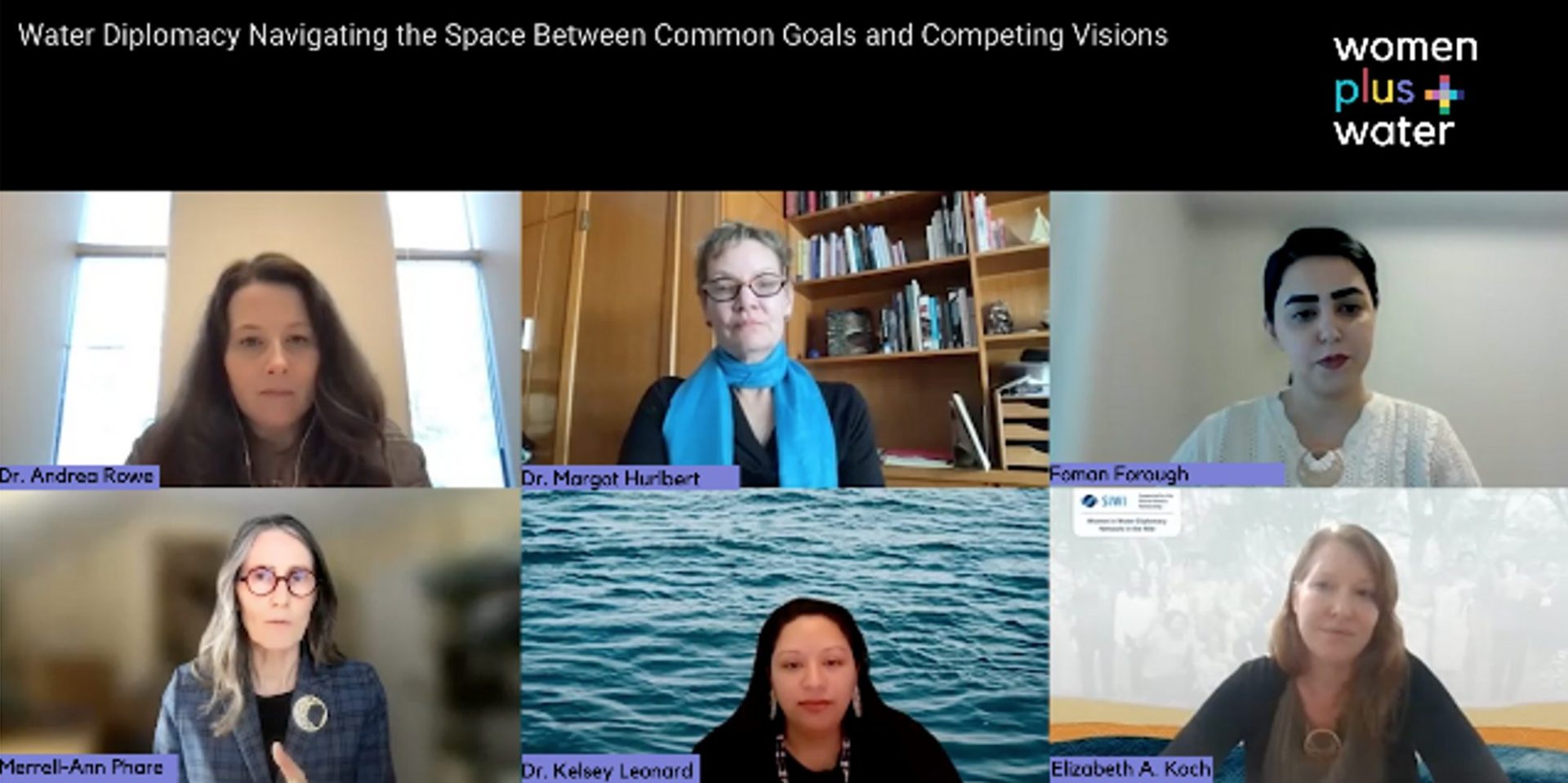
The series, hosted virtually, represented the first time that Women and Water Diplomacy Network members came together with the Women Plus Water community, an international network of over 2000 people in 45 countries committed to inclusive excellence in water to discuss the importance of including women in transboundary decision making and water diplomacy.
Host Dr. Kelsey Leonard, an Indigenous scholar and leader of the WAMPUM Lab at the University of Waterloo, started the conversation by highlighting the priorities of Indigenous people concerning water, climate, and ocean justice. The Women and Water Diplomacy Network’s commitment to increasing women’s decision-making power in conflict-affected areas parallels Dr. Leonard’s work.
Including women and Indigenous people in formal water diplomacy mechanisms, such as the International Joint Commission, is relatively recent in North America. Merrell-Ann Phare, Canadian Commissioner on the International Joint Commission and Women in Water Diplomacy Network Member highlighted the importance of reconciliation and challenging the status quo to increase collaboration between international commissioners, developing partnerships with Indigenous peoples, and centering the needs of people and communities in addition to the technical aspects of water management often prioritized by hydrologists and engineers.
The opportunity to learn from women’s experience in basins worldwide is essential. Foman Forough, a Member of the Women in Water Management in Central Asia and Afghanistan Network, shared her extensive experience in the Kabul River Basin, highlighting the connection between women’s involvement in the technical aspects of water management and peace and security. Foman’s experience speaks to a more significant issue about who is included in decision-making spaces. As Dr. Margot Hurlbert, Canada Research Chair in Climate Change, Energy and Sustainability Policy at the University of Regina, pointed out, a new strategic direction is required in water diplomacy to dislodge decision-making models that fail to act on the needs of women and Indigenous people in Canada and internationally.
The creator of Women Plus Water, Dr. Corinne Schuster-Wallace, participated in the Women and Water Diplomacy Symposium and official side event hosted at the United Nations during World Water Day in New York. Corinne is inspired by the possibilities for future collaboration between the Women in Water Diplomacy Network and Women Plus Water and invites people interested in sharing their expertise to apply to the Women Plus Water Expert List and check out recordings of the full lecture series at www.womepluswater.org. To view the webinar recording please visit: https://gwf.usask.ca/events-meetings/women-and-water.php.
For more information about Women Plus Water or opportunities to collaborate, please contact Dr. Andrea Rowe, Equity, Diversity, and Inclusion Specialist at Global Water Futures and the Global Institute for Water Security at gwfedi@usask.ca.
The Women in Water Diplomacy Network marks the 2023 International Women’s Day online open event
By Katie Goldie-Ryder, Programme Officer, SIWI, and Member of the Women in Water Diplomacy Network’s Process Support Team
The Global Women in Water Diplomacy Network met online for the third annual International Women’s Day event, on 8th March. The theme for 2023’s International Women’s Day (IWD) was “DigitAll: Innovation and Technology for Gender Equality”. The Network members reflected on the importance of being united with all the many women around the world who strive to achieve their rights, potential, and power to be recognized. The event provided an opportunity for Network Members to discuss the value of International Women’s Day for them and the similarities and differences for how it is commemorated in their countries and regions. Reflections on the value of IWD were shared by Dr Muna Musnad, the Women in Water Diplomacy Network Leadership Council and Gulzhan Makhmudova, the Women in Water Management Network in Central Asia and Afghanistan.
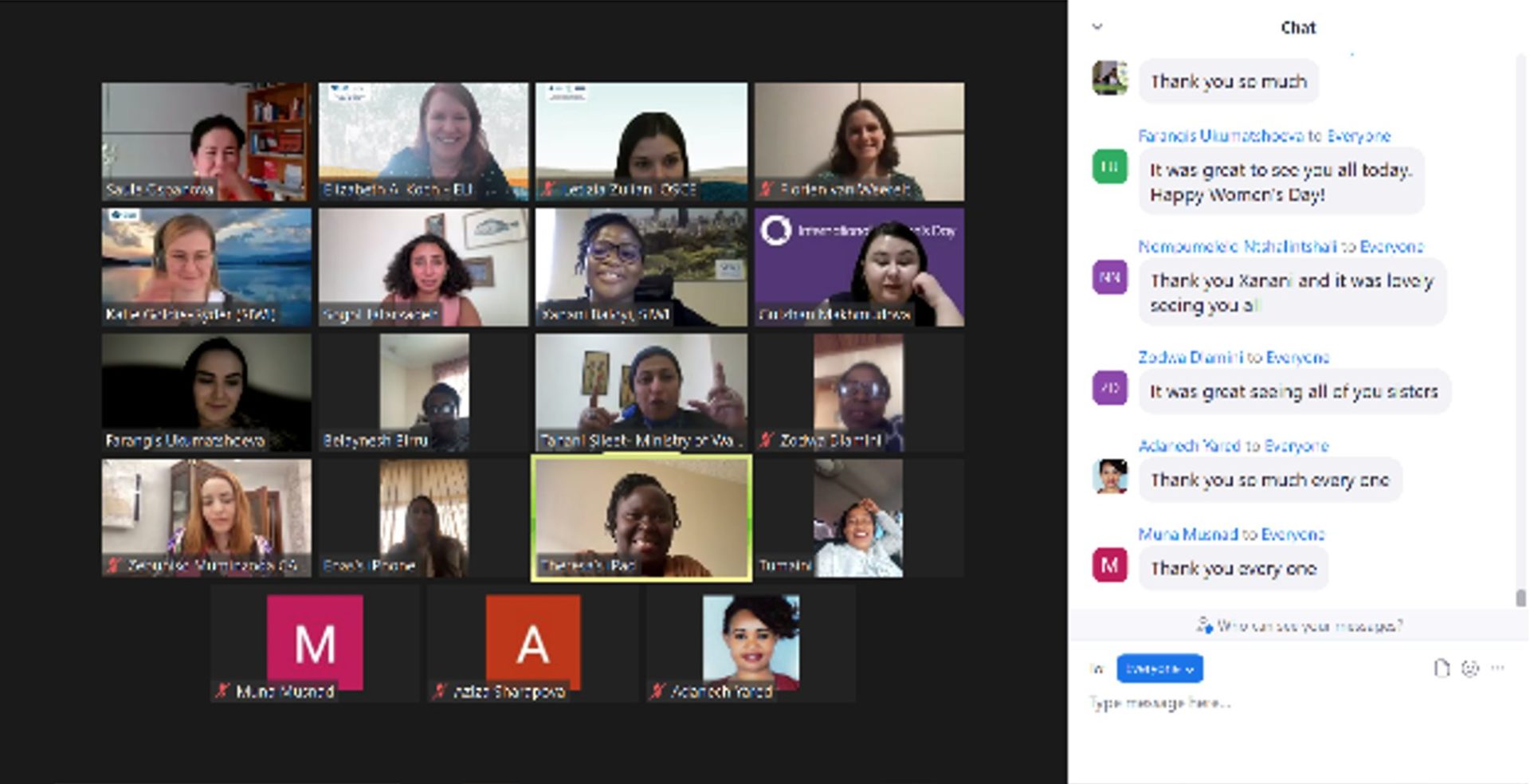
This was followed by an open discussion on barriers, opportunities, and best practices in digitalization for the water sector. It also gathered feedback for the forthcoming workshop on the role of digitalization in inclusivity to be held later this year.
The event also included information on the forthcoming network events in New York, during and alongside the UN 2023 Water Conference, shared by Elizabeth A. Koch, Senior Manager, ELI.
Lastly, Dr Saule Ospanova, Senior Environmental Advisor, OSCE shared exciting updates for the Central Asia-Afghanistan Network as the third phase of the Women Water Management and Conflict Prevention project was continuing in 2023. The third phase includes dedicated resources for network-to-network experience and knowledge exchanges.
The Women in Water Diplomacy Network featured at the United Nations International Women’s Day
By Elizabeth A. Koch, Senior Manager, International Programs, Environmental Law Institute and Process Support Team Lead for the Women in Water Diplomacy Network
It was a great honor to represent the Women in Water Diplomacy Network at the 67th Commission on the Status of Women on International Women’s Day 2023 at the United Nations Headquarters in New York City, USA. At the kind invitation of Network Champions Tanja Miškova, Ministry of Foreign Affairs, Ambassador-at-Large for Water Diplomacy, Slovenia and UNESCO World Water Assessment Program’s (WWAP) Laura Imburgia, I was able to elevate the importance of collecting and utilizing gender-disaggregated data from local to transboundary levels alongside fellow panelists Huda M. Alsahi and Dr Toyosi Igejongbo. The March 8th session, ‘Strengthening Rural Women’s Capacity in Natural Resources Management through Improved Data,’ served as an excellent opportunity to highlight important tools and strategies available today which can greatly contribute to improved collection and use of gender-disaggregated data such as the UNESCO World Water Assessment Program’s outstanding toolkit. The WWAP toolkit, including sample indicators and questionnaires among a range of tools, is relevant for any organization, project, or process engaged in water management and can support institutions and bodies to get a better sense of the differentiated water realities of stakeholder and beneficiaries. The collection and use of gender-disaggregated data is an essential feature of any gender analysis and foundational to motivate, design, and monitor policies and programming for natural resource management. As we know there is no such thing as gender ‘neutral’ water governance – without gender disaggregated data water institutions and projects make poor assumptions that largely reinforce the status quo and current gender inequalities. Further, the promotion and support to the broader collection of gender disaggregated data is a key principle of feminist foreign policy which of course is a core foundation of the Women in Water Diplomacy Network and our Global Strategy. The full session is available online in six languages at https://media.un.org/en/asset/k1j/k1j5onvw0g.
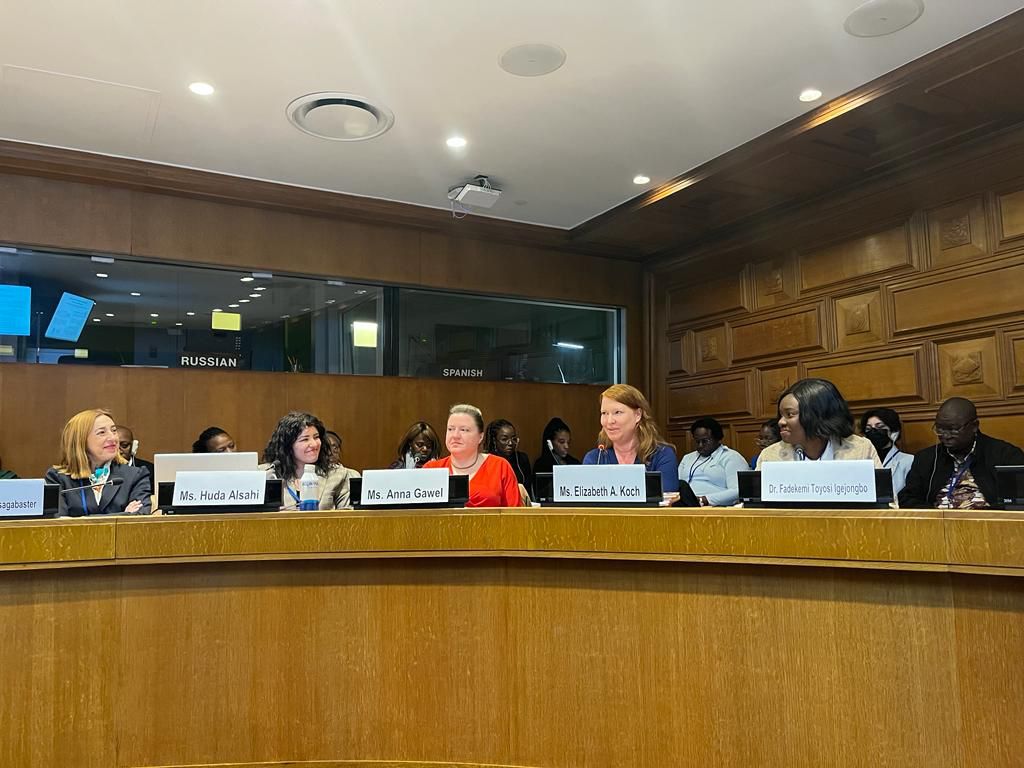
Women in Water Diplomacy Network in focus in special International Women’s Day episode of the Environmental Law Institute’s ‘People, Places and Planet Podcast’
By Jessica Troell, Senior Attorney and Director of the International Water Program at the Environmental Law Institute
International Women’s Day, celebrated globally on March 8, was marked this year at the Environmental Law Institute (ELI) by a special edition of our Podcast “People, Places, and the Planet” focused on Women and Water and highlighting the tremendous work and progress of the Women and Water Diplomacy Network. Senior Attorney and Director of ELI’s International Water Program Jessica Troell highlighted the critical importance of women’s water tenure as the basis for their improved access to decision-making around water resources at all levels, citing ELI’s work assessing the legal recognition and protection of Indigenous Peoples’ and local communities’ water tenure with a focus on the rights of the women within those communities. This work, undertaken with partners such as the United Nations Food and Agriculture Organisation (FAO), the Rights and Resources Initiative (RRI) and the International Water Management Institute (IWMI), has helped elevate the issue of women’s water tenure in national and international policy discussions and will play an important role in the Global Dialogue on Water Tenure, launched at the UN Water Conference in New York this past March.
ELI’s Senior Manager of International Programs, Elizabeth Koch, provided an in-depth overview of the work of the Women in Water Diplomacy Network, from its origins in the Nile to a global Network with high visibility at the UN Water Conference. Highlighting the critical need for elevating women’s voices in decision-making around transboundary waters issues and for building on the incredible momentum of the Women in Water Diplomacy Global Network in building a community of practice that provides capacity building and fosters a shared vision for improved peacebuilding through water diplomacy. Elizabeth highlighted the Network’s Strategy released last year at the World Water Week in Stockholm and the opportunities it provides for bringing together even more partnerships – additional transboundary basins, funders, and other organizations – to realize the vision of the global network.
To listen to the full podcast episode visit: https://www.eli.org/podcasts

